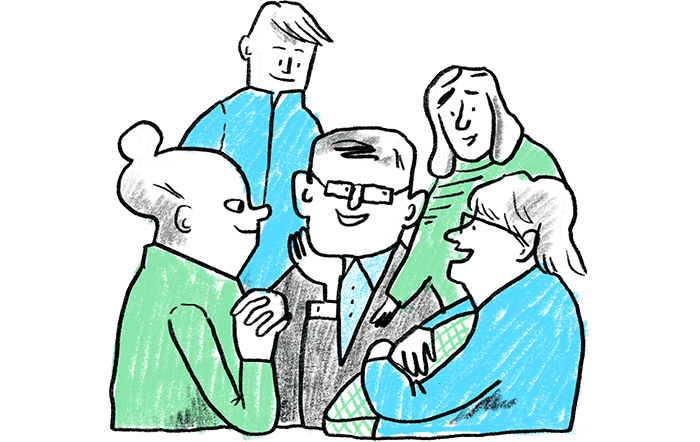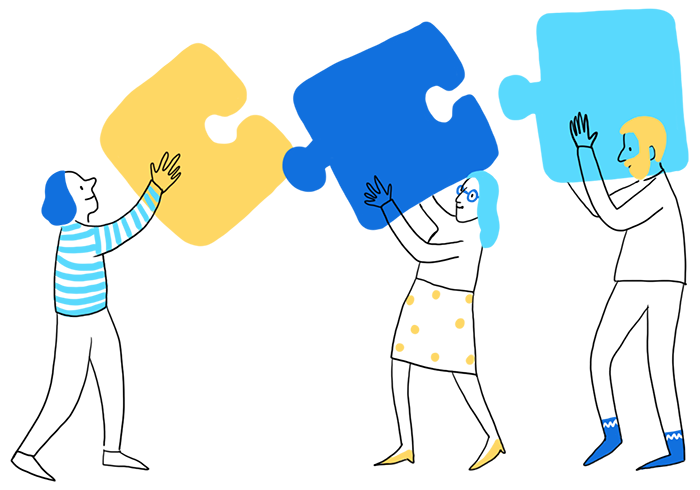English translation
Hi! The English site is only a beta for now and still has many errors (especially in names and locations).
We are working hard to fix them and making more content available than ever before so expect constant updates.

The consultation process for developing a new neighborhood plan is fundamentally divided into six steps, following the planning process from the initial idea search to the approved plan. We place a strong emphasis on diverse and extensive consultation aimed at allowing residents of all ages and other stakeholders the chance to participate in shaping the urban environment and to express their viewpoints.
Click on the video to watch.
Consultation is a critical element throughout the working time of the neighborhood plan, with an emphasis on residents being involved in the planning process at all stages. As noted earlier, the consultation is divided into a six-step process. However, the work process of neighborhood planning is roughly divided into three phases, with different methods of consultation used in each phase.

In the first phase, ideas and comments from residents and other stakeholders are sought. At this stage, various methods of consultation are employed to reach as many people as possible and gain an overview of the neighborhood's issues and the residents' ideas.
These include creative consultation methods, such as primary school children creating models of the neighborhood, which are then used in discussions with residents about neighborhood issues. Online surveys, focus groups, the formation of a group of enthusiasts, and regular meetings with resident councils are also utilized.
The results from this initial consultation help to identify the main challenges ahead and the residents' ideas for their neighborhood. From there, the direction is set for the continuation of the planning work.
The second phase begins when so-called working proposals for the neighborhood plan are presented. The presentation period is at least six weeks.
The working proposals outline policies and ideas based on analyses of the neighborhoods and the outcomes of the consultations in the first phase of work. These might include ideas related to transportation, enhancing local services, green initiatives, changes to properties, potential densification sites, and more.
The working proposals are presented both on the website of Reykjavík City and at exhibits at busy locations in the neighborhoods. At the exhibits, it’s possible to discuss the proposals with the neighborhood planning staff and planning consultants. To draw more attention to the proposals, neighborhood walks are organized to discuss the proposals and resident forums are held.
Comments and suggestions from residents and stakeholders are sought for the working proposals. Comments can be sent via email or postal mail or by filling out forms at the neighborhood exhibit. Online surveys are also used to reach a larger group of residents.
The third and final phase begins with the presentation of the final proposals for the new neighborhood plan. These are fully developed planning proposals with outline plans, reports, and provisions that have considered previous consultation outcomes. The presentation period is at least six weeks.
Once again, an exhibit of the proposals is set up in the neighborhoods and on the City's website. A special information meeting is also held in the neighborhood, which is streamed live. During the presentation period, residents and other stakeholders again have the opportunity to formally comment on the planning proposals. All comments are substantively responded to, and adjustments to the planning proposals are made if necessary.
After the presentation period, the new neighborhood plan is sent for publication and enactment in the Official Gazette.
Questions, news, suggestions, and more can be sent to the email address hverfisskipulag@reykjavik.is
The project is under the jurisdiction of the Planning Officer at the Department of Environment & Planning of Reykjavík City.